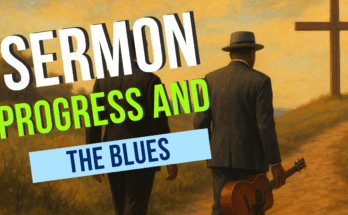As an Amazon Associate I earn from qualifying purchases.
 On this site and in other places, we spend a lot of time discussing the need to exegete the scripture for effective preaching. This is a very important dimension in sermon preparation. However, you must also understand two other important “narratives” or “stories” to be able to effectively understand the context of your preaching. In short there are three stories that we should understand.
On this site and in other places, we spend a lot of time discussing the need to exegete the scripture for effective preaching. This is a very important dimension in sermon preparation. However, you must also understand two other important “narratives” or “stories” to be able to effectively understand the context of your preaching. In short there are three stories that we should understand.
Exegeting the Congregation’s Story
Who is the congregation? This really affects your preaching. You need to understand the denominational tradition of your congregation You need to know and understand the issues of your denomination. You need to know and understand how the church fits into that tradition. You need to know if there are any issues going on in that particular church. You need to know who has the power in the church. Is there conflict in the church? Are there any struggles in the church?
It is important to answer these questions and others like them. Don’t act like you think you know the answer without working to really answer the questions. about what you think the answer is, you need to do the real work of answering. Don’t assume that legalism is a problem in your church because you see it as a problem for your denomination. Don’t assume that your church’s number one problem is misuse of congregational power when the problem might be your own misuse of power. The main point is that you don’t assume anything. Ask and answer real questions about the congregation so that you can preach to the real people sitting in front of you.
Exegeting the Preacher’s Story
Know who you are. What are you dealing with? What are you struggling with? If you don’t analyze yourself, then you are very likely to simply use the pulpit as a bully pulpit. If you don’t analyze yourself, then you might be preaching to demons from your own past rather than preach the sermons that the people who are in front of you need.
What is your theological worldview? What do you really know and believe? It is important to answer such questions to make sure that you are still preaching that which you are certain of and not things that you used to believe. Look at your own story and again don’t make any assumptions, answer the real questions.
Exegeting God’s Story
Then you go to the scripture itself to understand the scripture. Look at the scripture and exegete it according to all of the principles that you have seen on this site,most notably the four waves of exegesis.
Amazon and the Amazon logo are trademarks of Amazon.com, Inc, or its affiliates.






